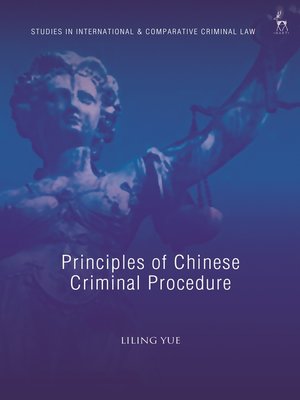Principles of Chinese Criminal Procedure
ebook ∣ Studies in International and Comparative Criminal Law
By Liling Yue

Sign up to save your library
With an OverDrive account, you can save your favorite libraries for at-a-glance information about availability. Find out more about OverDrive accounts.
Find this title in Libby, the library reading app by OverDrive.



Search for a digital library with this title
Title found at these libraries:
| Library Name | Distance |
|---|---|
| Loading... |
This book presents a short history and timeline of criminal procedure legislation in China. First, it addresses the status of Human Rights Conventions and the challenges resulting from human rights standards for Chinese criminal procedural law and practice. The discussion then moves on to explore the fundaments of Chinese criminal procedure such as the applicable law found in the Chinese CPL (Criminal Procedure Law) and legal institutions.
The book covers relevant actors in the Chinese Criminal Justice System (ie judges, prosecutors, police, defence councils) as well as the relationships between them. It also includes topics relating to the victims of crime and their role in criminal proceedings. Starting with pre-trial investigations (extending in particular to coercive measures and discretionary powers in the implementation of non-prosecution policies) the book continues as a guide through the basic principles of criminal trial, standards of evidence and rules related to conviction. Appeals and the issue of reopening criminal proceedings are also considered, with the book making particular reference to a number of special procedures (including juvenile delinquency) in the closing chapter.
The book covers relevant actors in the Chinese Criminal Justice System (ie judges, prosecutors, police, defence councils) as well as the relationships between them. It also includes topics relating to the victims of crime and their role in criminal proceedings. Starting with pre-trial investigations (extending in particular to coercive measures and discretionary powers in the implementation of non-prosecution policies) the book continues as a guide through the basic principles of criminal trial, standards of evidence and rules related to conviction. Appeals and the issue of reopening criminal proceedings are also considered, with the book making particular reference to a number of special procedures (including juvenile delinquency) in the closing chapter.







